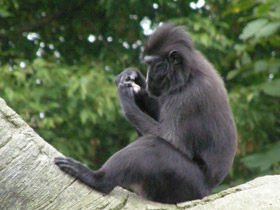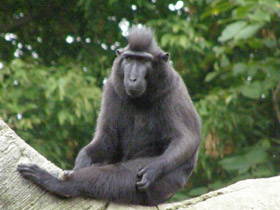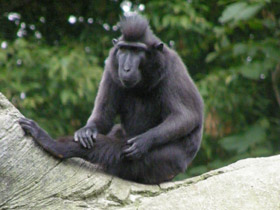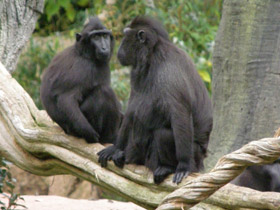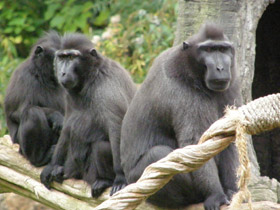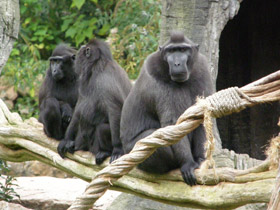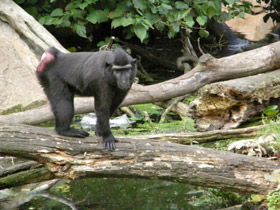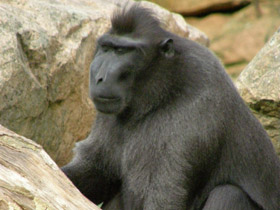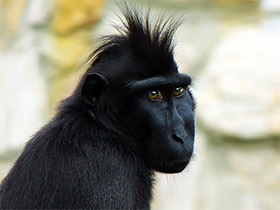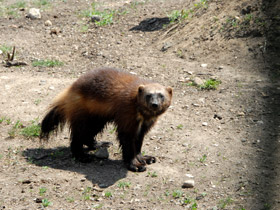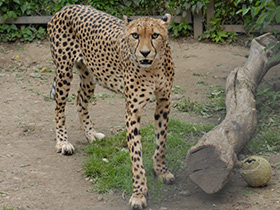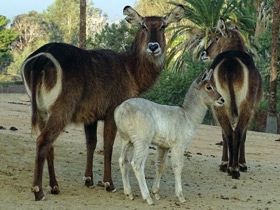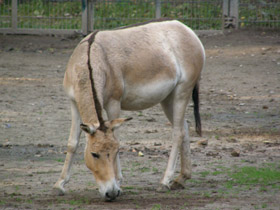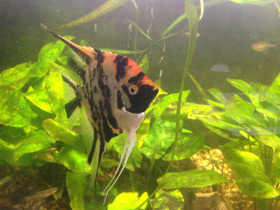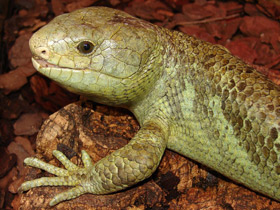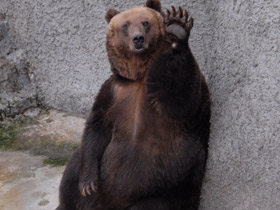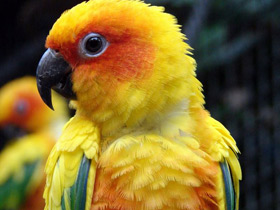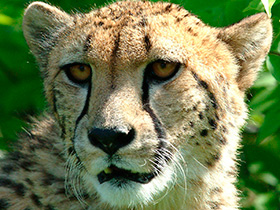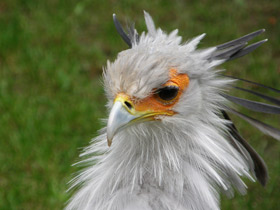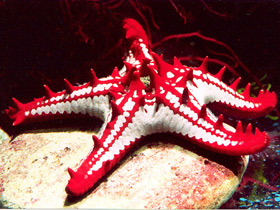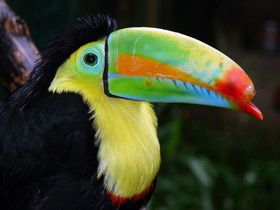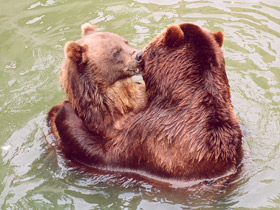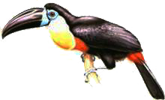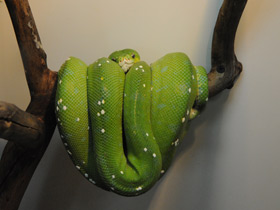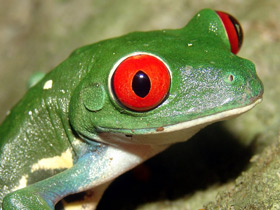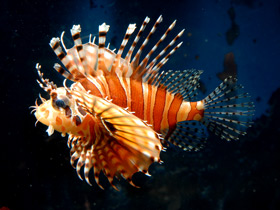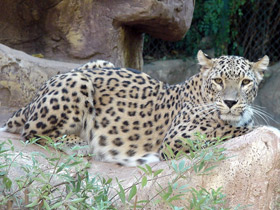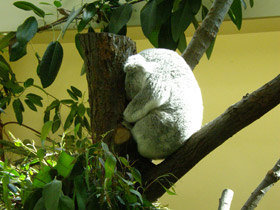The Celebes crested macaque (Macaca nigra), the crested black macaque, Sulawesi crested macaque, or the black ape
The Celebes crested macaque (Macaca nigra), also known as the crested black macaque, Sulawesi crested macaque, or the black ape, is an Old World monkey that lives in the Tangkoko reserve in the north-eastern tip of the Indonesian island of Sulawesi (Celebes), as well as on smaller neighbouring islands.
Distribution and appearance
Macaca nigra is a species of catarrhine primate of the family Cercopithecidae. Macaca nigra is found on the northeastern Indonesian island of Sulawesi, as well as on smaller neighbouring islands.
These monkeys reach a body length of 45-57 cm and weigh between 5.5 and 10 kg. The front of the head of both males and females is blackish-grey and hairless. The snout of the Macaca nigra is elongated and gets its name from the pronounced whorl at the top. The tail of these monkeys is very short, rudimentary, measuring only 1-2 cm.
Lifestyle and behaviour
Macaca nigra is a diurnal inhabitant of the rainforest and feeds and rests mainly in the trees, although it sometimes descends to the ground.
They live in groups of 5 to 25 individuals. Small groups have only one male, larger groups have up to 4, but females outnumber them approximately 4 to 1.
Young males are forced to leave their group when they reach sexual maturity, after which they often form all-male groups before joining a new mixed group.
The gestation period of the Macaca nigra is about 6 months, and a single young is usually born during the rainy season when food is plentiful. The female feeds her young with milk for about a year and they reach sexual maturity at 3 or 4 years of age, the females being somewhat earlier than the males.
Macaca nigra in the Red Data Book
Macaca nigra is included in the IUCN Red List as a critically endangered species.
Human interactions
Because it devastates crops and fields, the Celebes crested macaque is hunted as a pest. It is also hunted to provide bushmeat. Clearing the rain forests further threatens its survival. Its situation on the small neighbouring islands of Sulawesi (such as Bacan) is somewhat better, since these have a low human population. The total population of the macaque on Sulawesi is estimated at 4,000–6,000, while a booming population of up to 100,000 monkeys is found on Bacan.

















